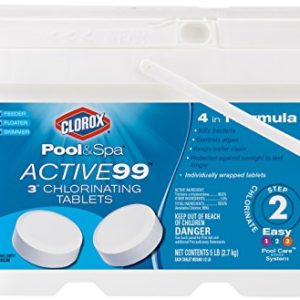

The oxidizer is missing, so you'll need a small amount of chlorine or bromine in the water to handle this cleaning aspect. What it is: Ionizers rely on two dissimilar metals-often copper (an algaecide) and silver (a sanitizer)-sent charged into the water as the sanitizer. Figure you could spend up to twice as much as you would if you use chlorine only. And if you use just bromine in the pool (not the BCDMH compound), it leaves the water a dull green color that foams up when you swim in it, because the oxidation process is weaker.Ĭost: It's more expensive to operate a pool with bromine. It's less irritating on mucus membranes than its chlorine cousin, although it still produces an odor. Pros/Cons: Bromine remains stable at high temperatures, which is why many technicians recommend it for spas more than swimming pools. oxygen shock) in the pool to create that same sanitizing/oxidizing power. Some people opt for a two-step process of combining bromine salt extracted from seawater with potassium peroxymonosulfate (a.k.a. Most homeowners rely on a hybrid version known as BCDMH tablets that are typically 66% bromine and 27% chlorine to tackle that job. How it works: Bromine does a fine job as a sanitizer, but it doesn't oxidize as well as chlorine. Aquatic specialist Alison Osinski believes 5% of the population has an allergy to chlorine. It can be an acceptable alternative for those with allergic reactions to chlorine, although that's not guaranteed since bromine is also in the same halogen chemical family. What it is: Pool suppliers sometimes suggest bromine as a substitute for chlorine. For a 20,000-gallon pool that's open year-round, figure you'll spend about $600 annually. How much chlorine you'll need depends on the size of your pool, length of the swim season, amount of use, and other factors. All four have drawbacks, including cost.Ĭhlorine is relatively cheap. A fourth alternative is PHMB, which doesn't require the use of any chlorine.

There are alternatives to chlorine including bromine, ionizers, and ozonators, though with each you'll still need to use some chlorine. The chemical is unpopular because it has a strong odor, reddens eyes, and causes allergic reactions in some swimmers. Chlorine is popular because it handles the three main jobs in keeping a swimming pool clean: It sanitizes (kills bacteria and germs), oxidizes (controls organic debris from perspiration and body oils), and deters algae.


 0 kommentar(er)
0 kommentar(er)
